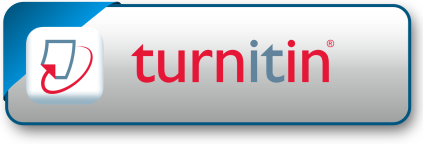PERKEMBANGAN KONSEP SMART CITY DALAM MOMENTUM REFORMASI BIROKRASI: STUDI PADA PEMERINTAHAN KOTA TANGERANG SELATAN
DOI:
https://doi.org/10.24853/swatantra.21.2.117-126Keywords:
Smart City, Reformasi Birokrasi, E-GovernmentAbstract
Guna mewujudkan Kota Tangerang Selatan menjadi cerdas (smart city) dan kota yang layak huni (liveable city) tentunya perlu didukung dengan tata kelola pemerintahan yang baik. Tata kelola pemerintahan lebih profesional, modern, maju dan akuntabel, sehingga memberikan layanan terbaik kepada masyarakat. Penelitian ini merupakan penelitian kualitatif dengan teknik analisis deskriptif dengan kajian kepustakaan atau studi literatur dimana penelitian ini berusaha menggambarkan fenomena-fenomena yang ada berasal dari berbagai sumber seperti jurnal atau penelitian terdahulu. Konsep smart city yang tertuang pada Laporan Akhir Kajian Penilaian dan Penyusunan Blue Print Kota Tangerang Selatan. Hal ini didasarkan pada PP No 96 Tahun 2012 tentang Pelaksanaan Undang- undang No 25 Tahun 2009 tentang Pelayanan Publik. Salah satu frame work smart city yaitu livable city merupakan sebuah istilah yang menggambarkan sebuah lingkungan dan suasana kota yang nyaman sebagai tempat tinggal dan sebagai tempat untuk beraktivitas yang dilihat dari berbagai aspek baik aspek fisik maupun aspek non fisik.References
AIchholzer, R. S. (2014). The Impact Of Social MediaUSe On Local Goverment Organizationaland Public Policy. New Jersey: Lisa Mahajan-Cusack.
Alamsyah. 2003. Pengaruh Perilaku Birokrasi terhadap Kualitas Pelayanan Publik (Studi pada Dinas Kabupaten Lebak Provinsi Banten). Disertasi Program Pascasarjana Universitas Padjadjaran Bandung
Asropi 2008. Budaya Inovasi dan Reformasi. Jurnal IlmuAdministrasi, volume V Nomor 3. September 2008.
Bertot, J. C., Jaeger, P. T., & Grimes, J. M. (2010). Using ICTs to create a culture of transparency: E-government and social media as openness and anti- corruption tools for societies. Government Information Quarterly, 27(3), 264–271.
Darmawan. 2015. Kinerja Aparatur Dinas Pemakaman dan Pertamanan Dalam Pengawasan Reklame Insidental di Kabupaten Purwakarta. Disertasi Program Pasca sarjana Universitas Padjadjaran Bandung
Dwiyanto, Agus. 2006. Reformasi Birokrasi Publik di Indonesia. Pusat Studi Kependudukan dan Kebijakan, Yogyakarta.Universitas Gajah Mada.
BPS. (2021, Oktober 06). Indeks Pembangunan Teknologi Informasi dan Komunikasi 2020. Retrieved from www.bps.go.id: https://www.bps.go.id/publication/2021/10/06/c17a0162c93579c862278ae6/indeks-pembangunan-teknologi- informasi-dan-komunikasi- 2020.html
Fitri Supriyantiwi, d. (2019). Implementasi Konsep Smart City Dalam Mewujudkan Good Governance Di Kota Tangerang Selatan. Prosiding Seminar Nasional HUMANIS, 16-24.
GDRB. (2010). Grand Design Reformasi Birokrasi 2010-2025. Jakarta: Kementerian Pendayagunaan Aparatur Negara.
KEMENPANRB. (2016, September 02).
Smart City, Solusi Tingkatkan Kualitas Pelayanan Publik. Retrieved from menpan.go.id: https://www.menpan.go.id/site/berita -terkini/menpanrb-smart-city-solusi- tingkatkan-kualitas-pelayanan-publik
Kompas. (2018, Desember 04). Upaya Tangsel Jadi Smart City pada 2021. Retrieved from
https://megapolitan.kompas.com/: https://megapolitan.kompas.com/rea d/2018/12/04/09502771/upaya- tangsel-jadi-smart-city-pada- 2021?page=all
LPPD. (2020). Laporan Penyelenggaraan Pemerintah Daerah Kota Tangerang Selatan. Tangerang Selatan: Sekretariat Daerah Kota Tangerang Selatan.
Masterplan Smart City. (2018). Executive Summary Masterplan Smart City Kota Tangerang Selatan Tahun 2018-2022. Tangerang Selatan: Tangerang Selatan.
RPJMD. (2016-2021). Rencana
Pembangunan Jangka Menengah Daerah Kota Tangerang Selatan 2016-2021. Tangerang Selatan: Dinas Ketenagakerjaan Tangerang Selatan.
Saphira, A. (2019). Kebijakan Tangsel Smart City Melalui Penggunaan Aplikasi SIARAN di Kota Tangerang Selatan. repository.uinjkt.ac.id, 1-
Siagian, S. (1994). Organisasi, Kepemimpinan, Perilaku Administrasi. Jakarta: CV. Haji Mas Agung.
Supriatna, Y. R. (2021). Memahami Birokrasi Pemerintahan dan Perkembangan. Bandung: Alfabeta.
Sepehrdoust, H. (2018). Impact of information and communication technology and anancial development on economic growth of OPEC developing economies. Kasetsart Journal of Social Sciences, 40(3), 546– 551.
Shim, D. C., & Eom, T. H. (2008). E-
government and anti-corruption: Empirical analysis of international data. International Journal of Public Administration, 31(3), 298–316.
Shirazi, F. (2008). The contribution of ICT to freedom and democracy: An empirical analysis of archival data on the Middle East. The Electronic Journal of Information Systems in Developing Countries, 35(1), 1–24.
West, D. M. (2004). E-government and the transformation of service delivery and citizen attitudes. Public Administration Review, 64(1), 15–27.
Wakhid, A. A. (2011). Eksistensi Konsep Birokrasi Max Weber dalam Reformasi Birokrasi di Indonesia. Lampung: IAIN Raden Intan Lampung.
Downloads
Published
Issue
Section
License
Copyright aims to protect the specific way the article has been written to describe an experiment and the results. SWATANTRA is committed to its authors to protect and defend their work and their reputation and takes allegations of infringement, plagiarism, ethical disputes, and fraud very seriously. SWATANTRA is published under the terms of the Attribution-NonCommercial 4.0 International (CC BY-NC 4.0). Authors retain copyright and grant the journal right of first publication (online and print) with the work simultaneously. We use the restrictive license (non-commercial) as follows:
BY (attribution): Users are allowed to share, distribute and redistribute the published article in any medium or format, with an identification of the authors and its initial publication in this journal. Authors are encouraged to post and distribute their articles immediately after publication (e.g., institutional or public repositories, personal websites). Authors are allowed to enter into additional contractual arrangements for the non-exclusive distribution of the published and an acknowledgment of its initial publication in this journal.
NC (non-commercial): Users are not allowed to use the article commercially without the permission of the authors. Authors agree explicitly that the published article is indexed worldwide in databases, repositories, and indexation services, even if these services operate on a commercial basis. Authors grant SWATANTRA explicit the right to include the published articles in databases, repositories, and indexation services. You can see examples of personal and commercial use on this link.
Below you may find the full text of the license signed by authors.
License
- License to Publish
The non-commercial use of the article will be governed by the Attribution-NonCommercial 4.0 International (CC BY-NC 4.0). The author hereby grants SWATANTRA an exclusive publishing and distribution license in the manuscript include tables, illustrations, or other material submitted for publication as part of the manuscript (the “Article”) in print, electronic, and all other media (whether now known or later developed), in any form, in all languages, throughout the world, for the full term of copyright, and the right to license others to do the same, effective when the article is accepted for publication. This license includes the right to enforce the rights granted hereunder against third parties.
- Author’s Warranties
The author warrants that the article is original, written by stated author/s, has not been published before, contains no unlawful statements, does not infringe the rights of others, is subject to copyright that is vested exclusively in the author and free of any third party rights, and that any necessary written permissions to quote from other sources have been obtained by the author(s).
- User Rights
Under the Creative Commons Attribution-Non Commercial 4.0 International (CC BY-NC 4.0) license, the author(s) and users are free to share (copy and redistribute the material in any medium or format) and adapt (remix, transform, and build upon the material). Users must give appropriate credit, provide a link to the license, and indicate if changes were made.
- Rights of Authors
Authors retain the following rights:
- Copyright, and other proprietary rights relating to the article, such as patent rights,
- The right to use the substance of the article in future own works, including lectures and books,
- The right to reproduce the article for own purposes, provided the copies are not offered for sale, and
- The right to self-archive the article.
- Co-Authorship
If the article was prepared jointly with other authors, the signatory of this form warrants that he/she has been authorized by all co-authors to sign this agreement on their behalf, and agrees to inform his/her co-authors of the terms of this agreement.








